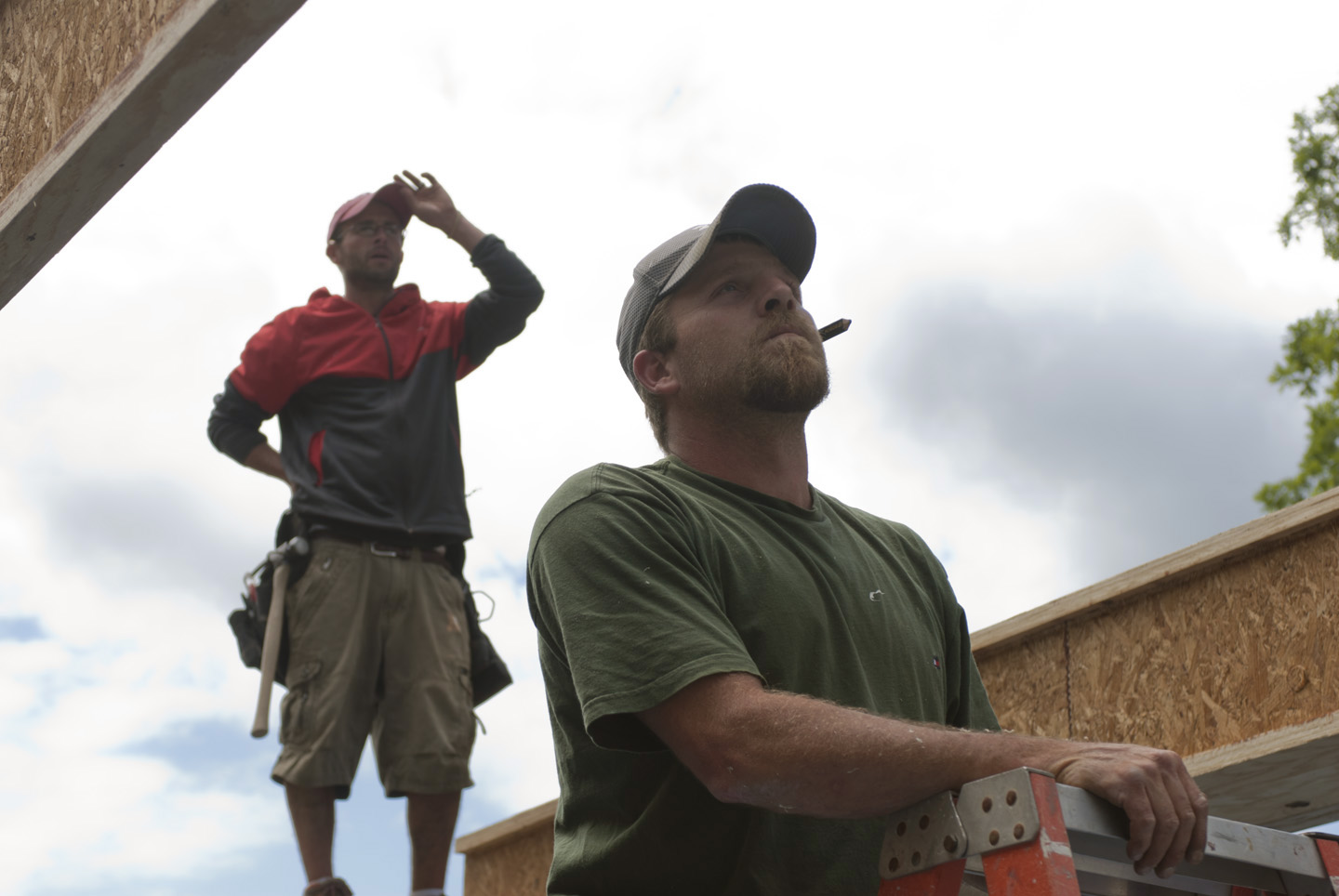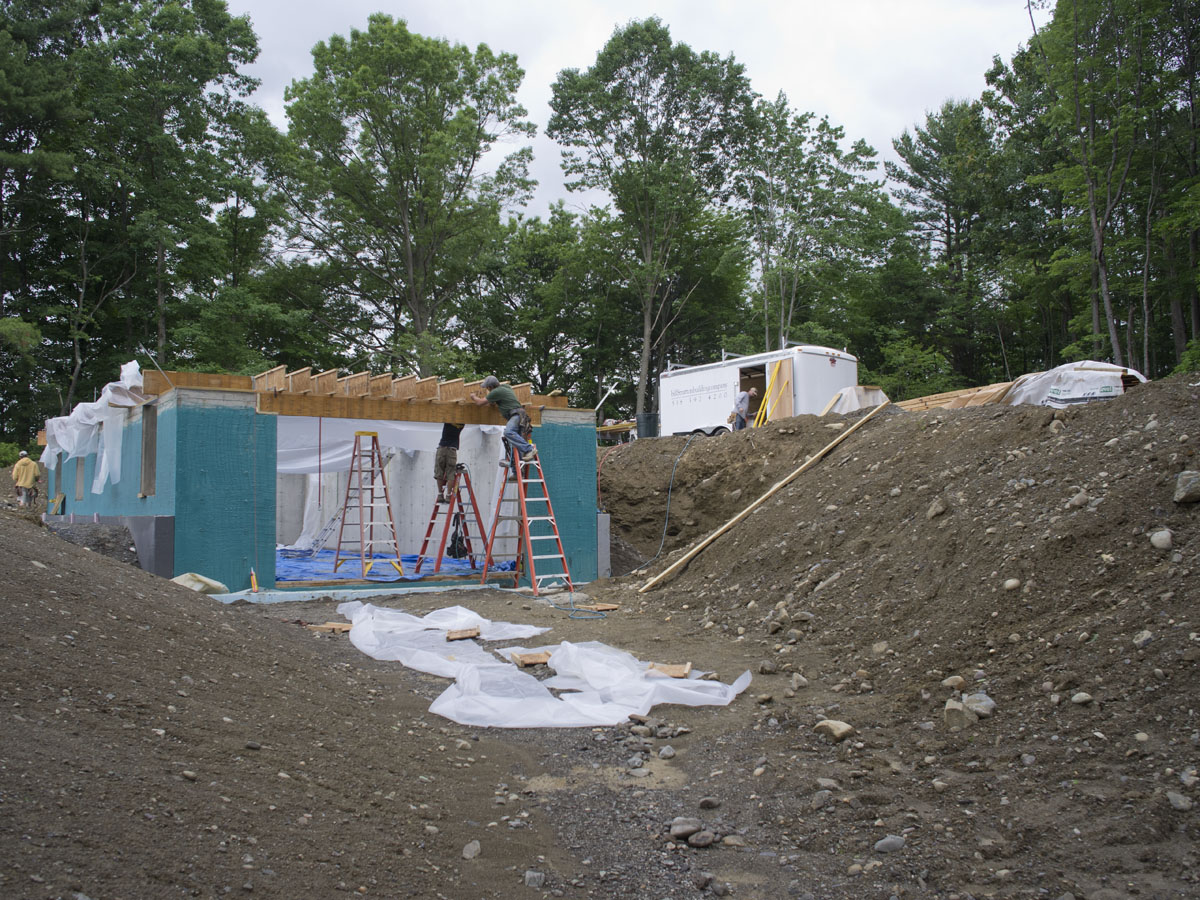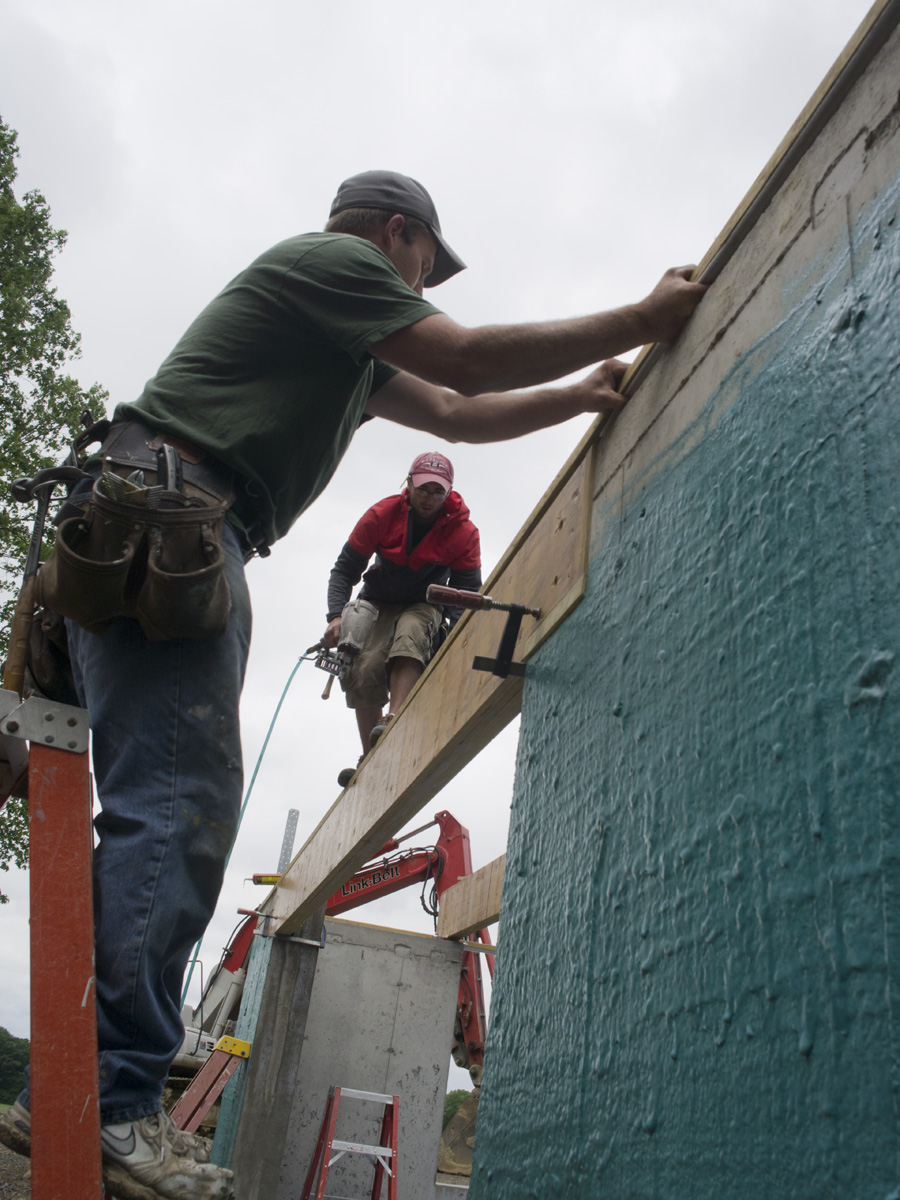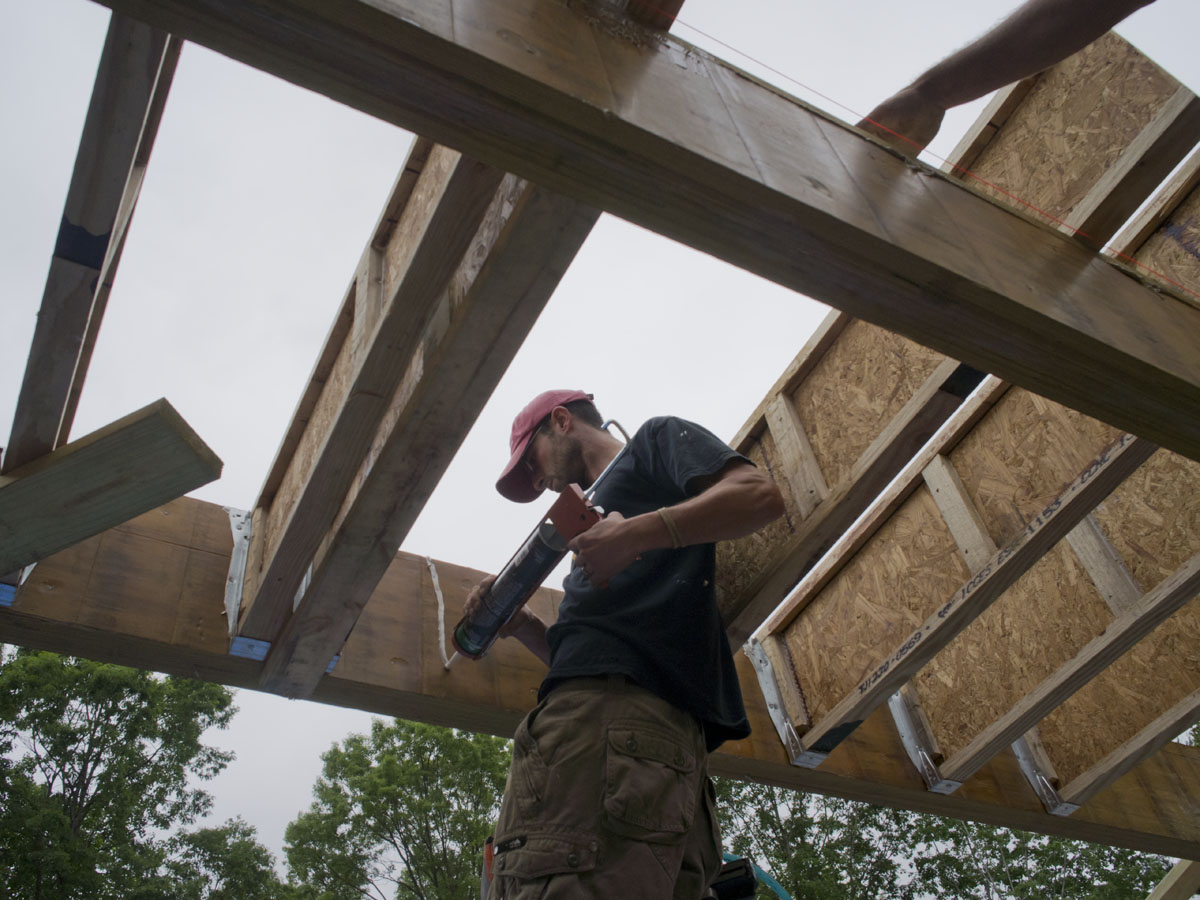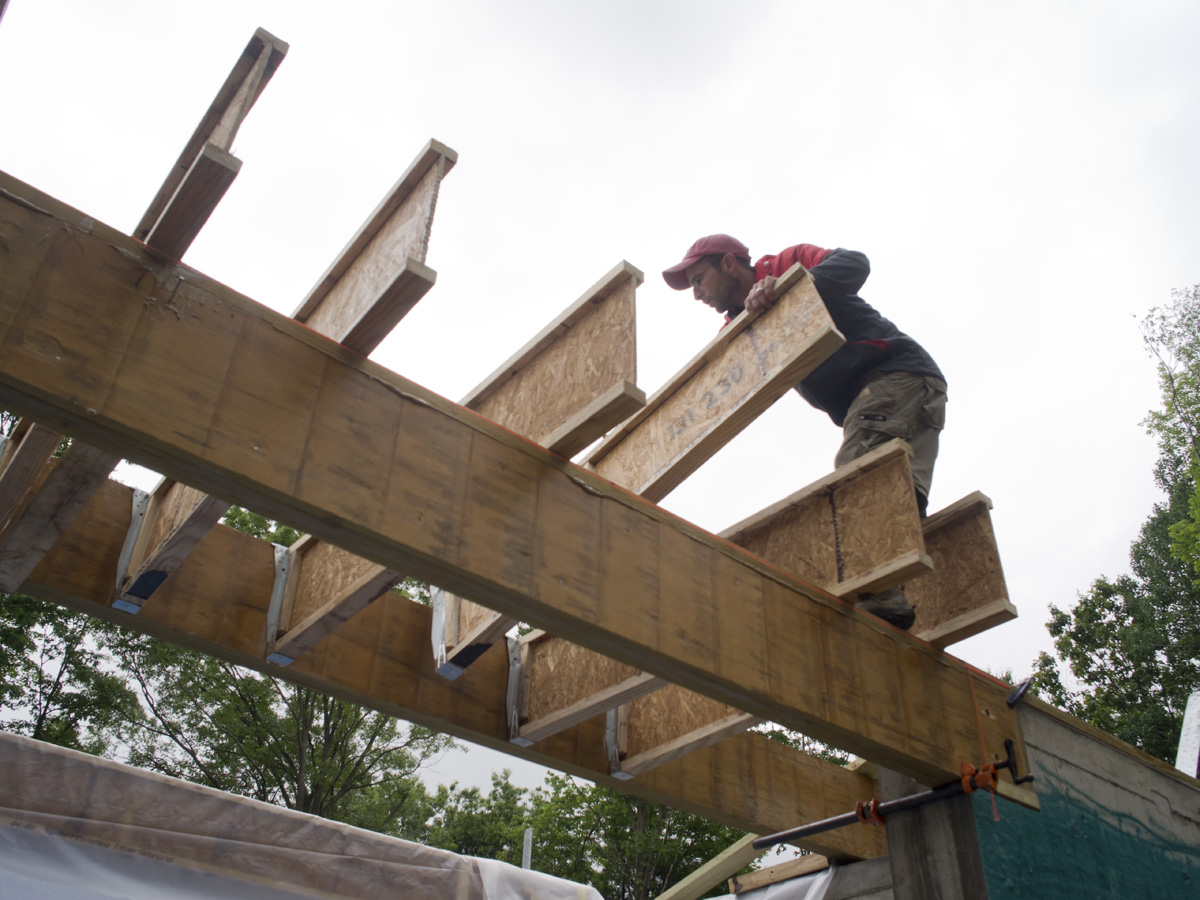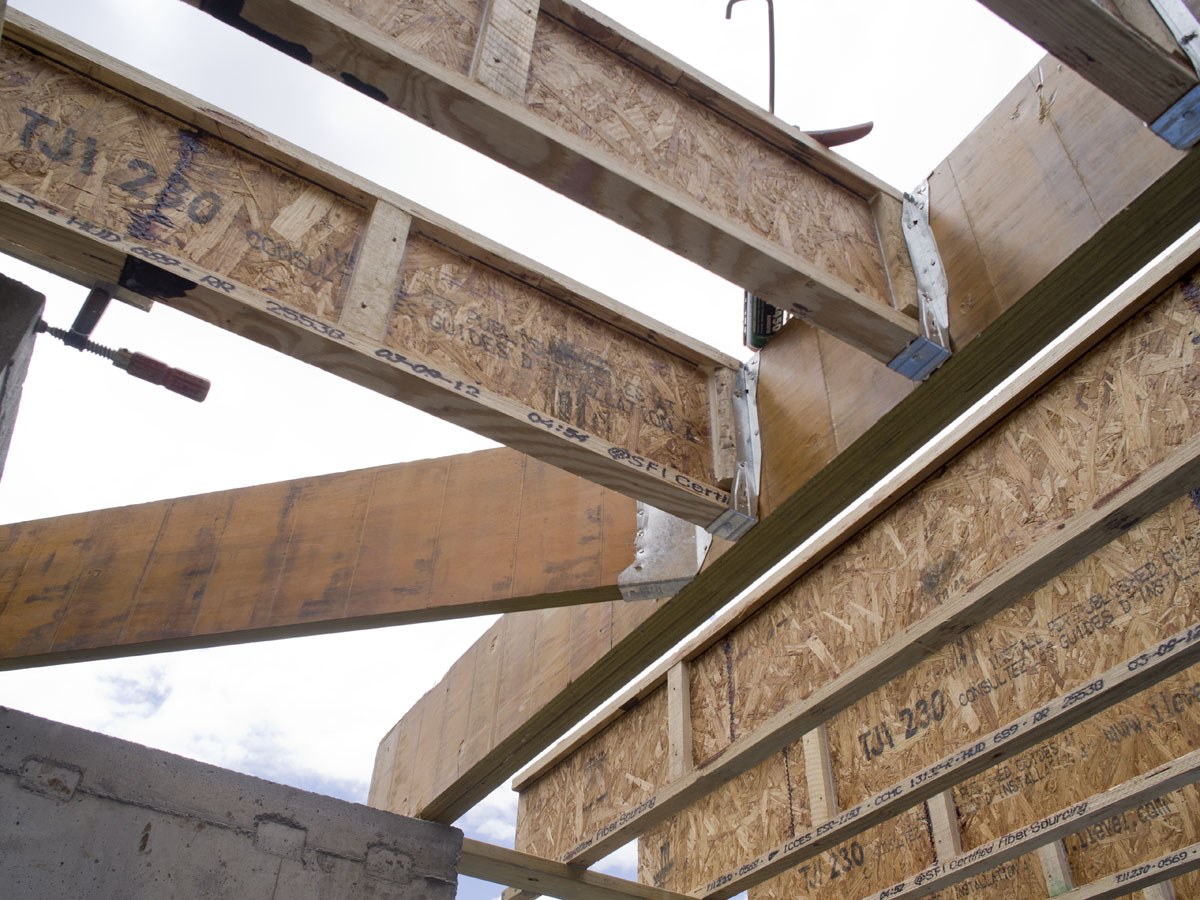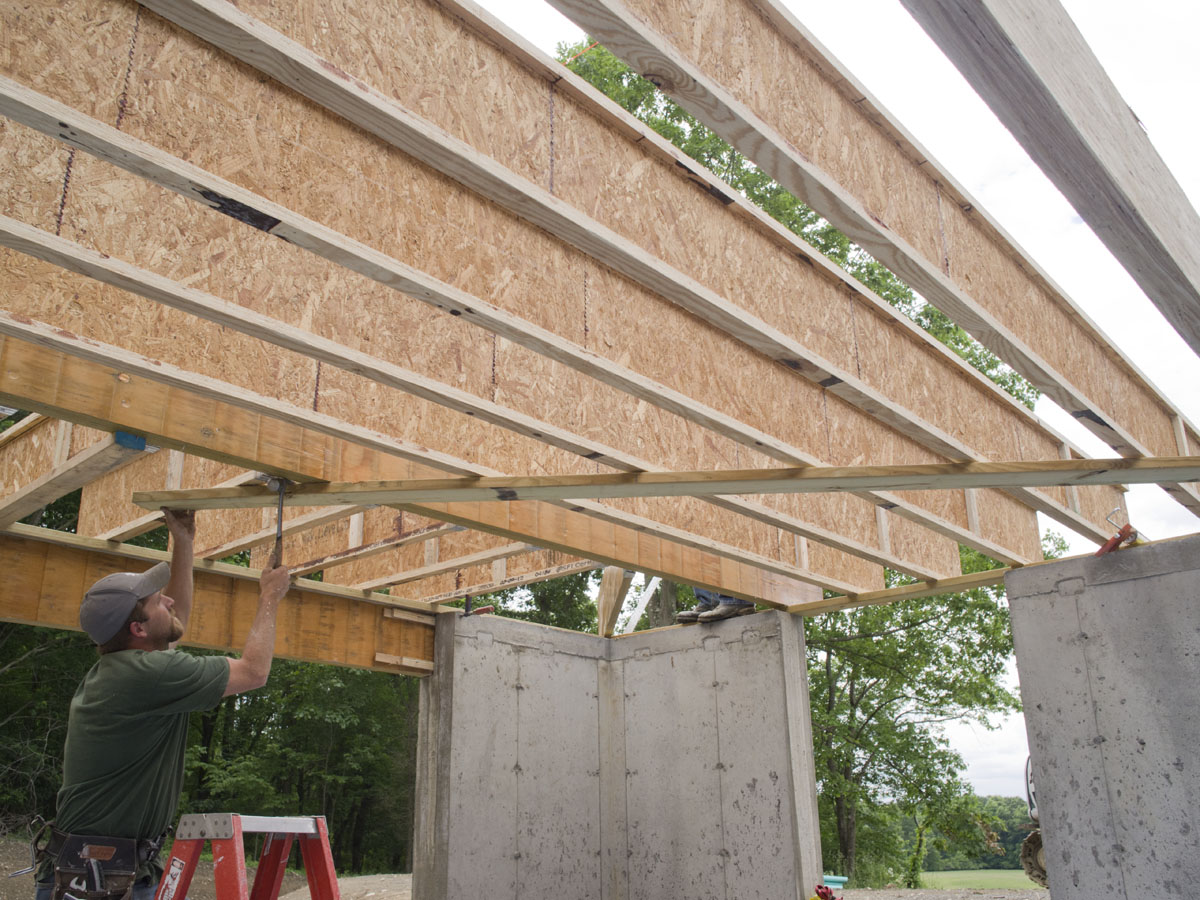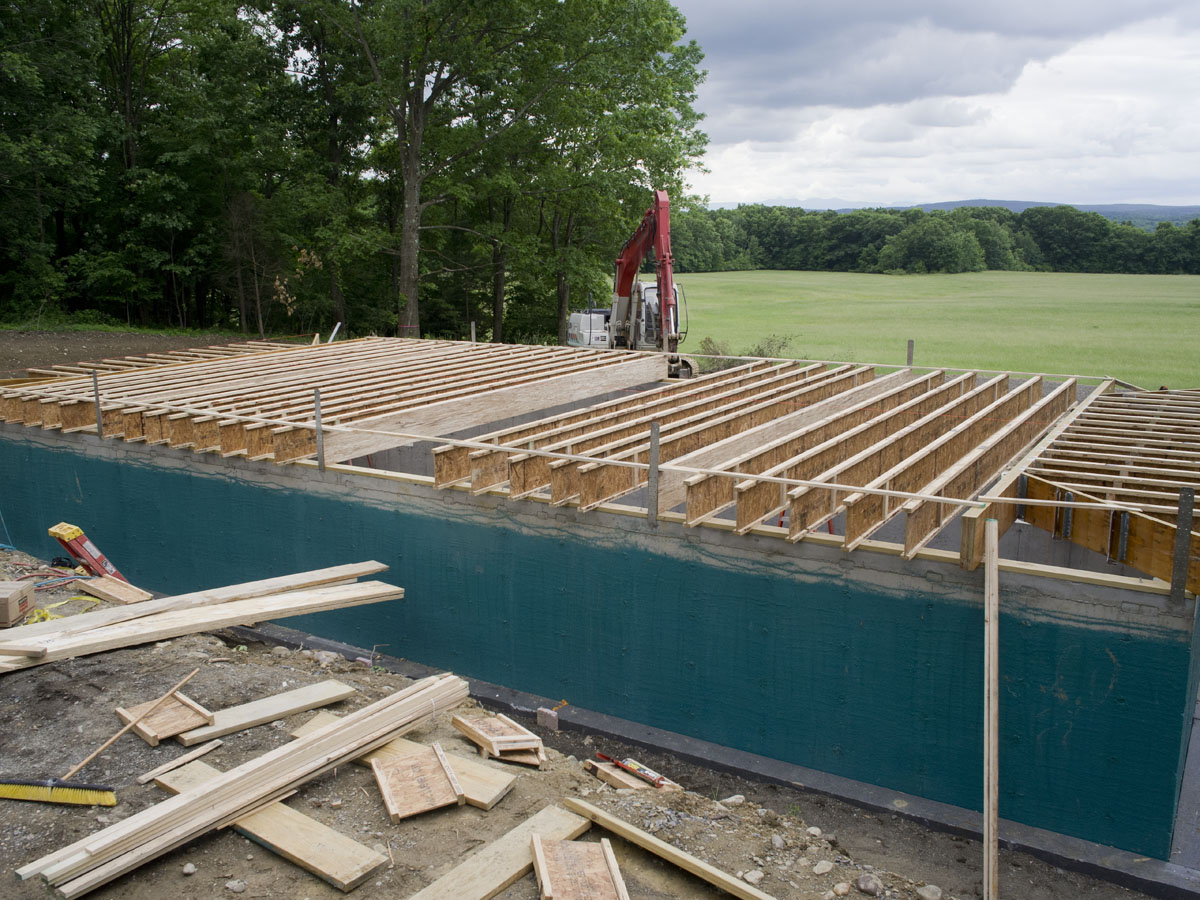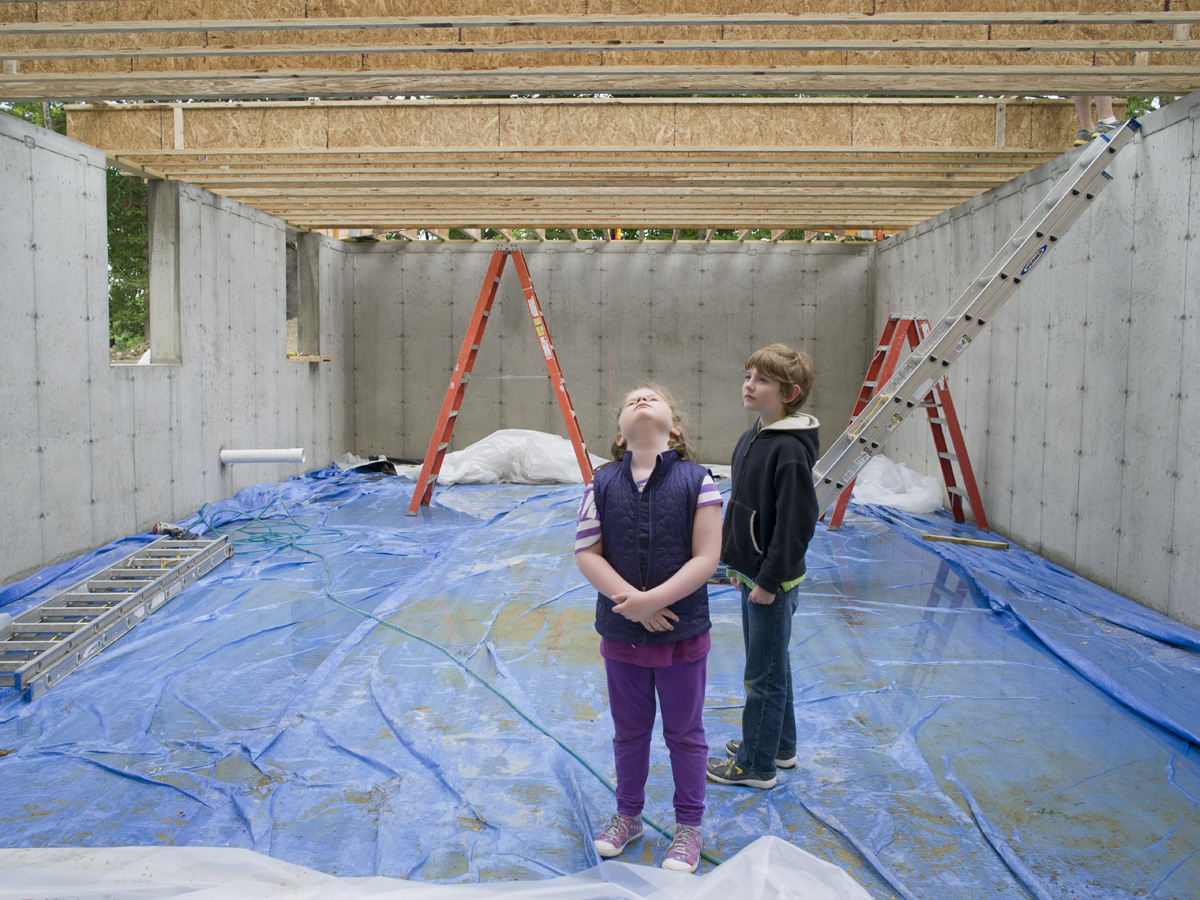 Digital illustration by Jeff Brink Illustrator for Dennis Wedlick Architect.
Digital illustration by Jeff Brink Illustrator for Dennis Wedlick Architect.
 Digital illustration by Nicholas, age 9.
Digital illustration by Nicholas, age 9.
Building the deck
Installing the septic gravel
 Our soil does not pass the perk test with its very high clay content. We needed to haul in 36 truck loads of gravel that drains adequately and will support our septic distribution.
Our soil does not pass the perk test with its very high clay content. We needed to haul in 36 truck loads of gravel that drains adequately and will support our septic distribution.
 Each load is distributed by Ted on his dozer.
Each load is distributed by Ted on his dozer.
 The almost finished raised bed septic field along the front of our hay field. The slightly darker material towards the back is the imported gravel.
The almost finished raised bed septic field along the front of our hay field. The slightly darker material towards the back is the imported gravel.
Finished Swale
Work begins on the deck
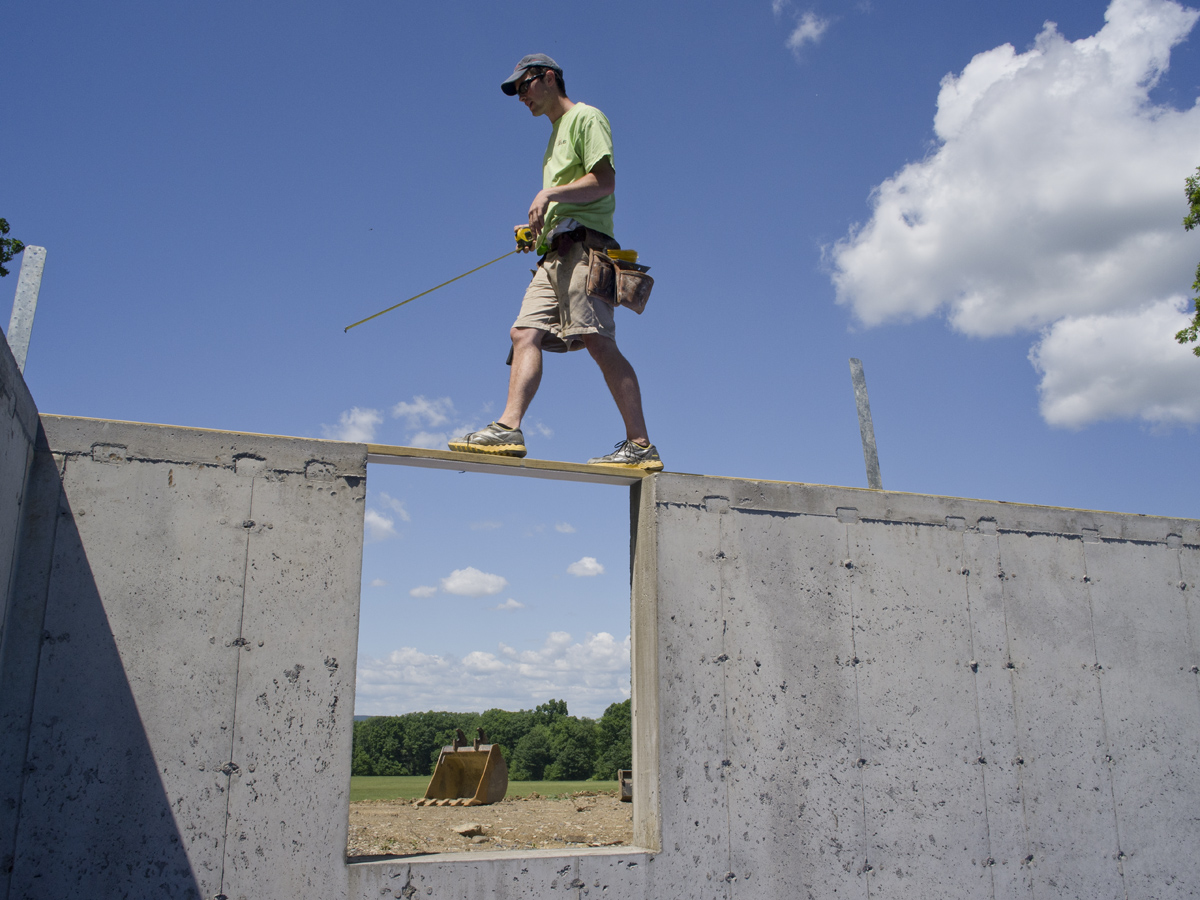 Rain has caused delay, so work on the deck began immediately after the slab was poured.
Rain has caused delay, so work on the deck began immediately after the slab was poured.
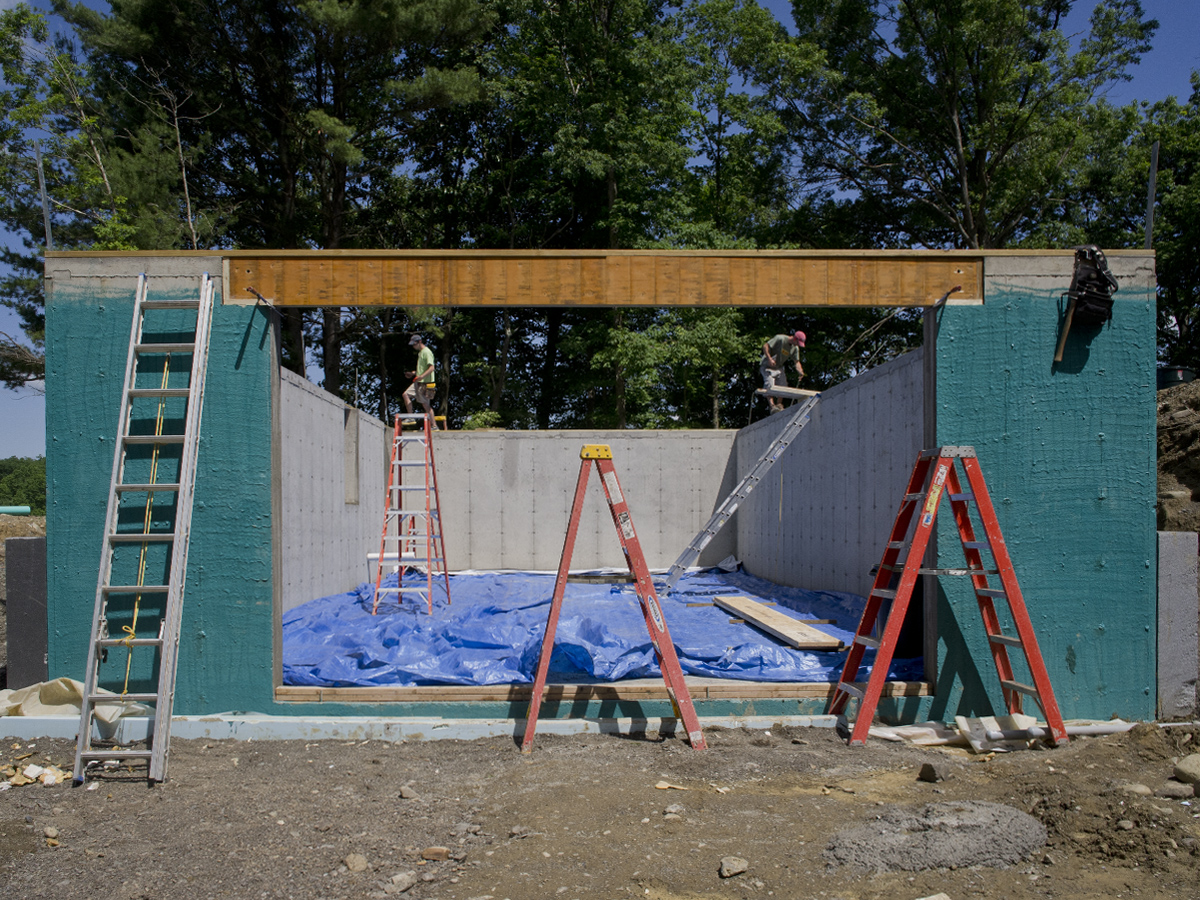 Our first LVL beam in place.
Our first LVL beam in place.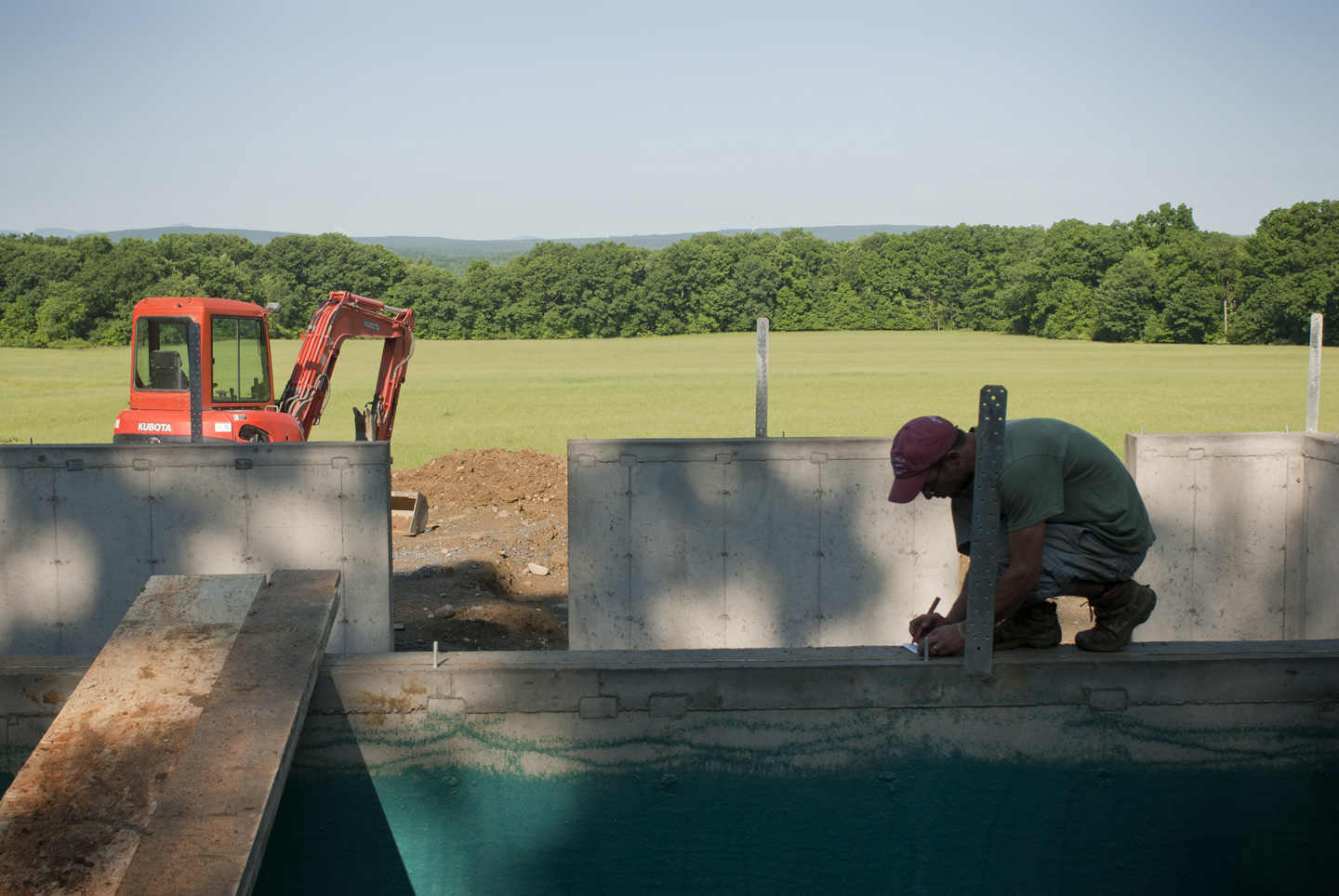 The vertical metal straps cast into the foundation will attach to the future glue lam frame of the house.
The vertical metal straps cast into the foundation will attach to the future glue lam frame of the house.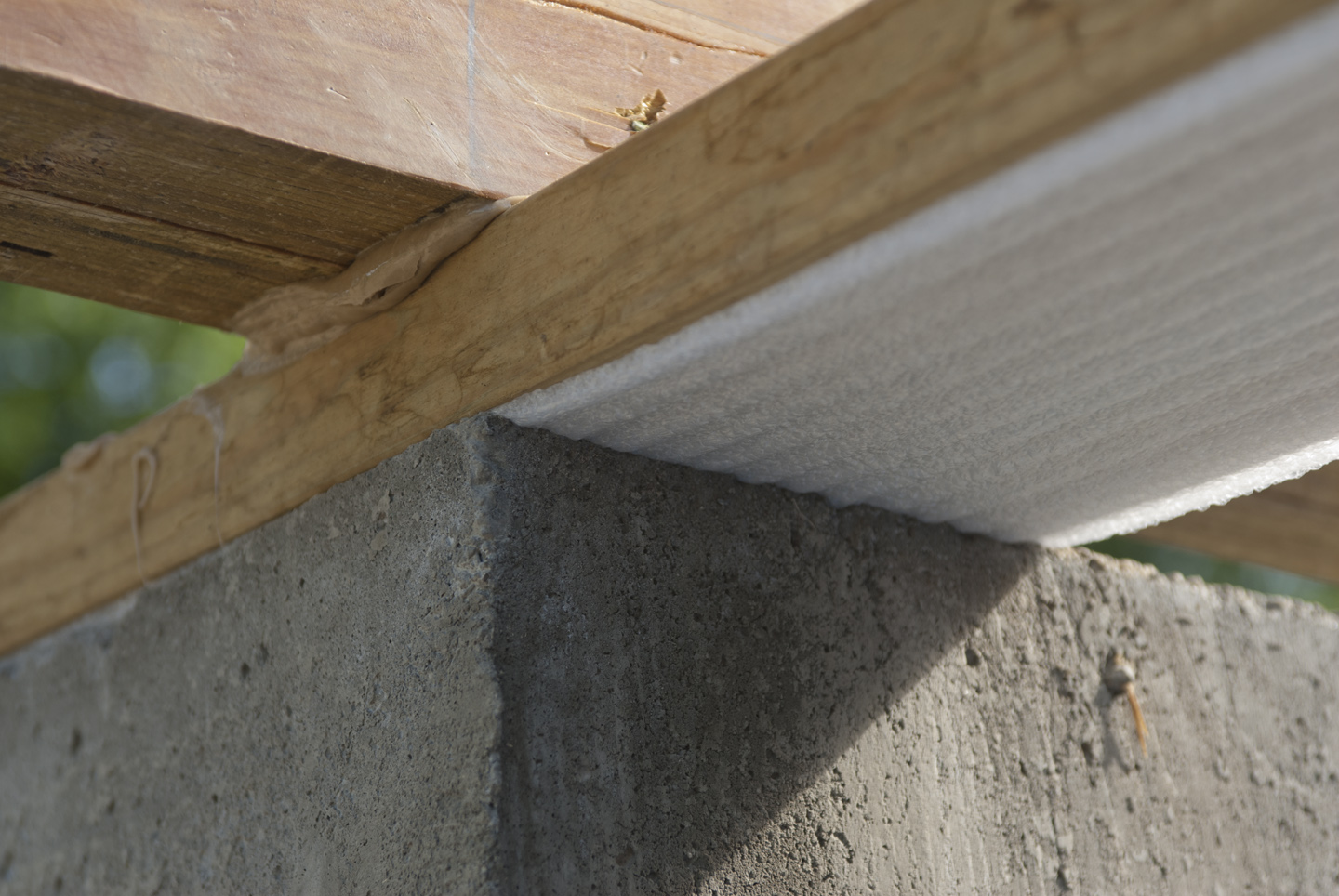 Detail showing the sill sealer gasket between the sill plate and the foundation. Also, the LVL beam above is glued in place. From the beginning of construction all joints and connections are carefully glued and sealed air tight on the passive house.
Detail showing the sill sealer gasket between the sill plate and the foundation. Also, the LVL beam above is glued in place. From the beginning of construction all joints and connections are carefully glued and sealed air tight on the passive house.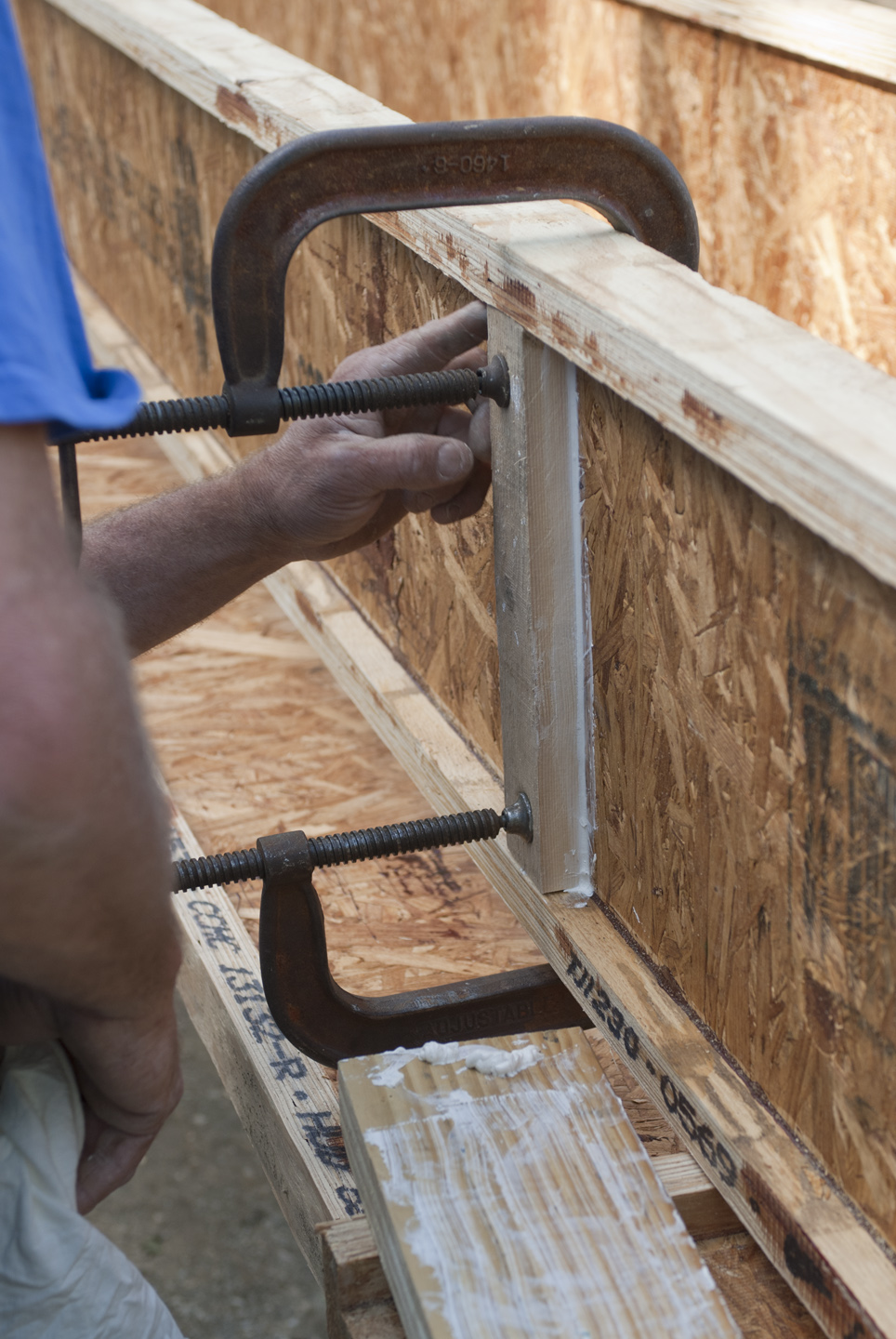 Connection point on an i-beam glued and sealed in place.
Connection point on an i-beam glued and sealed in place.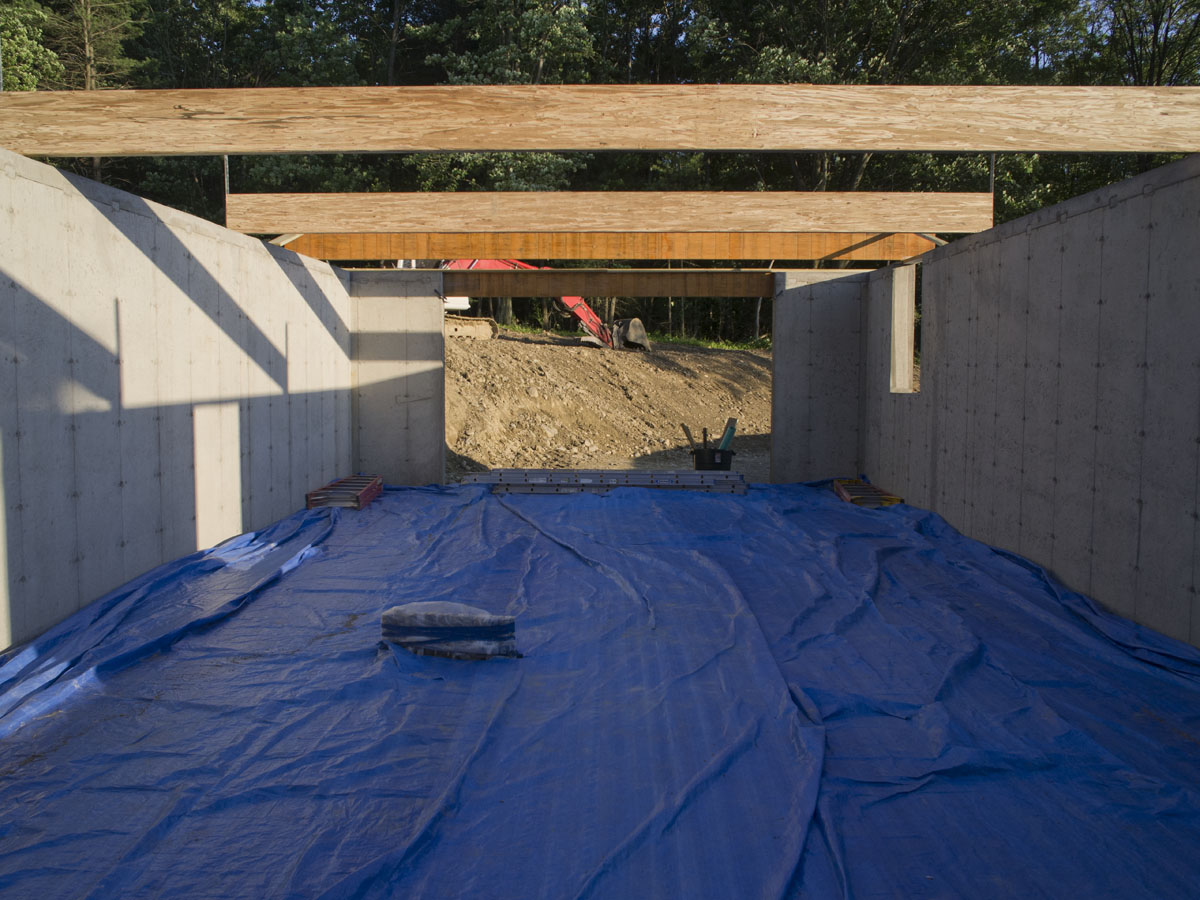 At the end of the first day, 14″ LVL and PSL beams installed.
At the end of the first day, 14″ LVL and PSL beams installed.
Pouring the slab
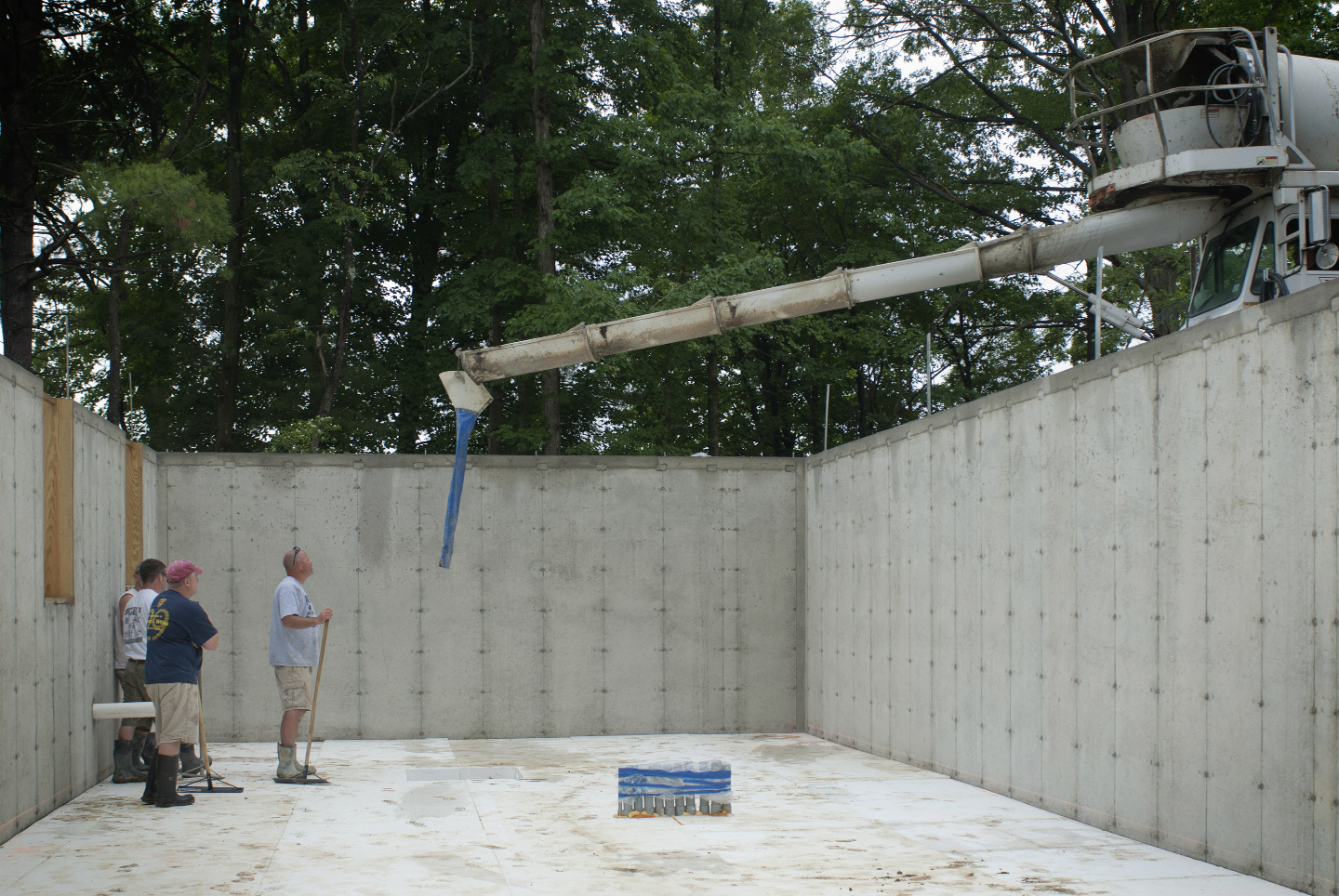 Rain has caused delay. The slab is poured at the first opportunity of clear weather.
Rain has caused delay. The slab is poured at the first opportunity of clear weather.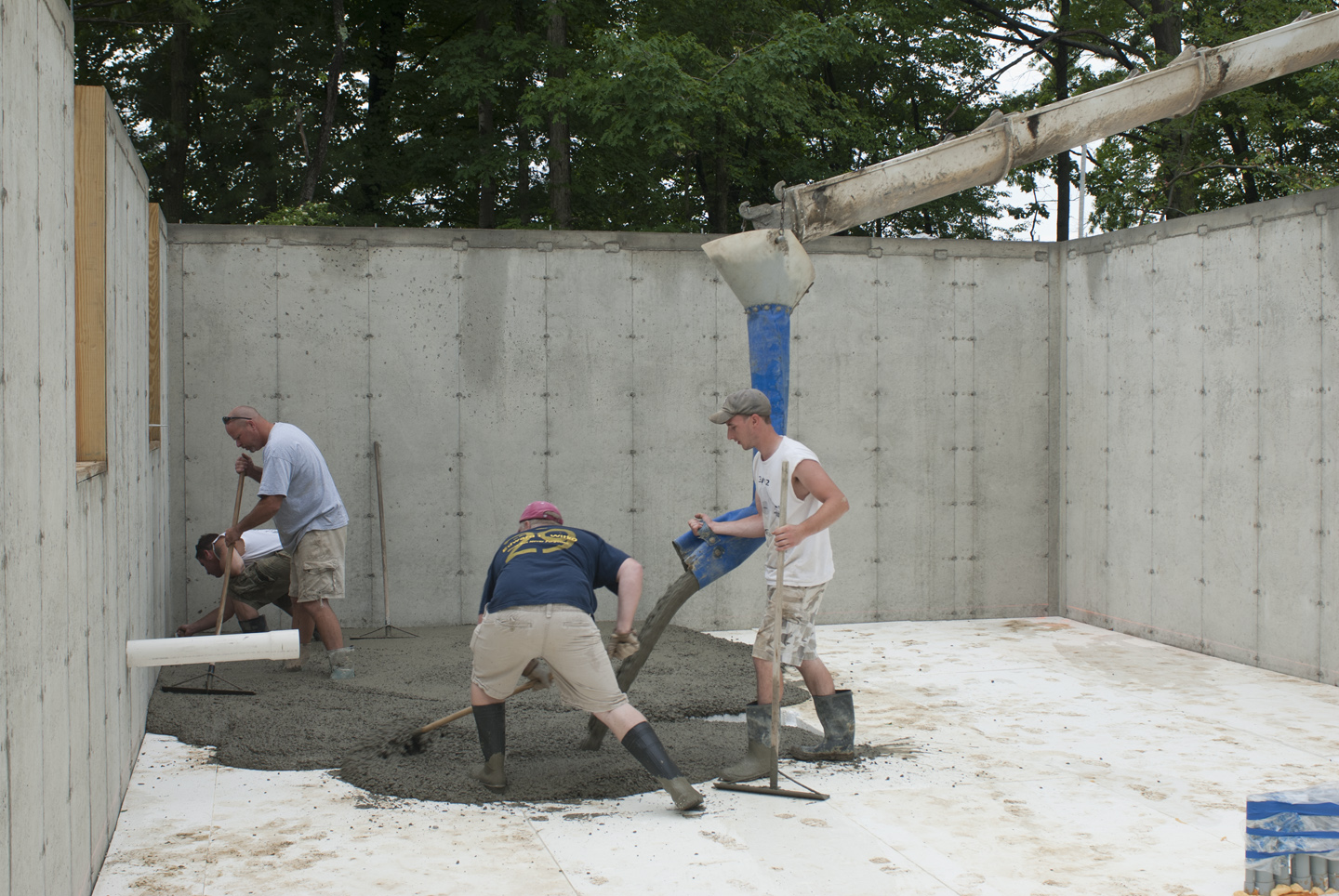 4” of concrete poured on 10″ of EPS foam.
4” of concrete poured on 10″ of EPS foam.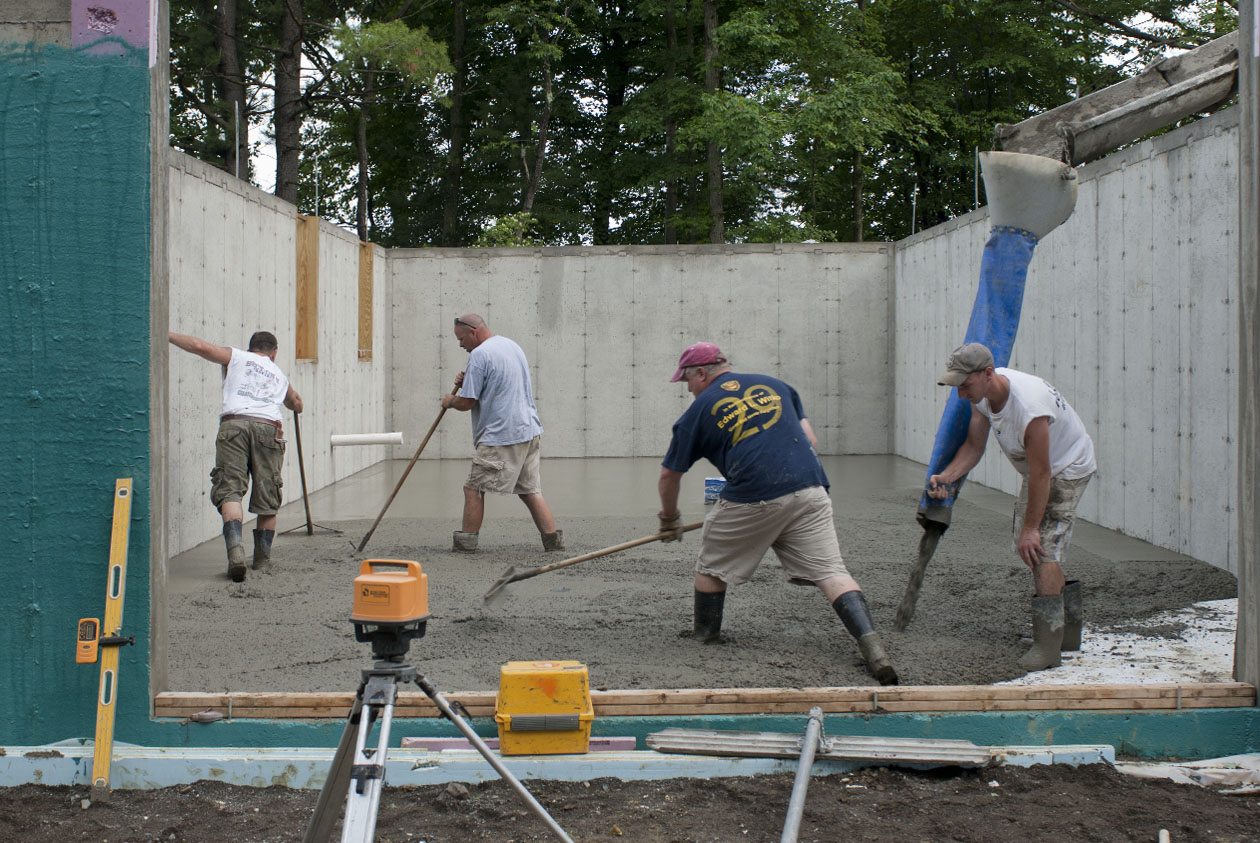 Dan Gregg brought in extra hands for the slab pour.
Dan Gregg brought in extra hands for the slab pour.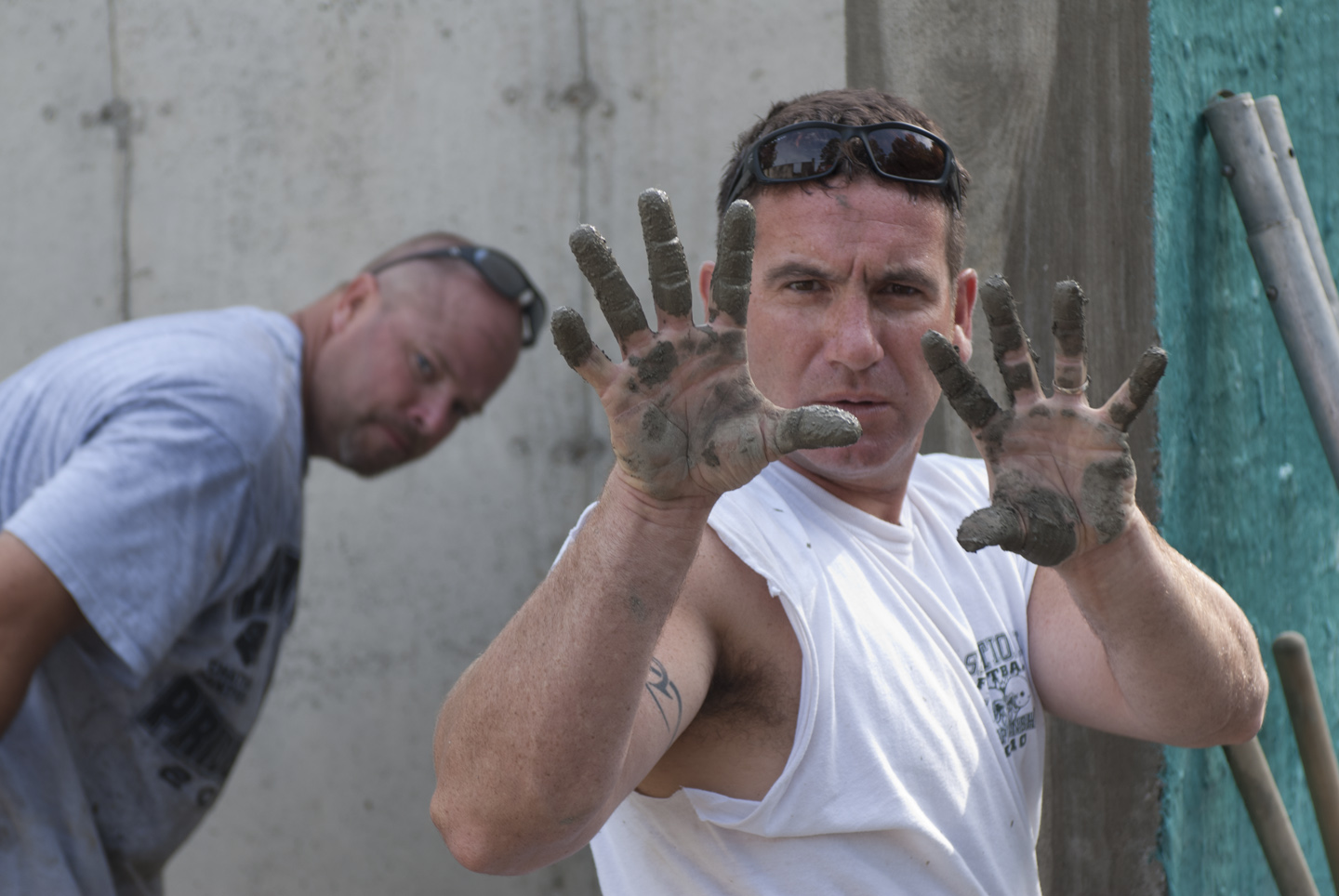 Dan and Rich from Dan Gregg foundations.
Dan and Rich from Dan Gregg foundations.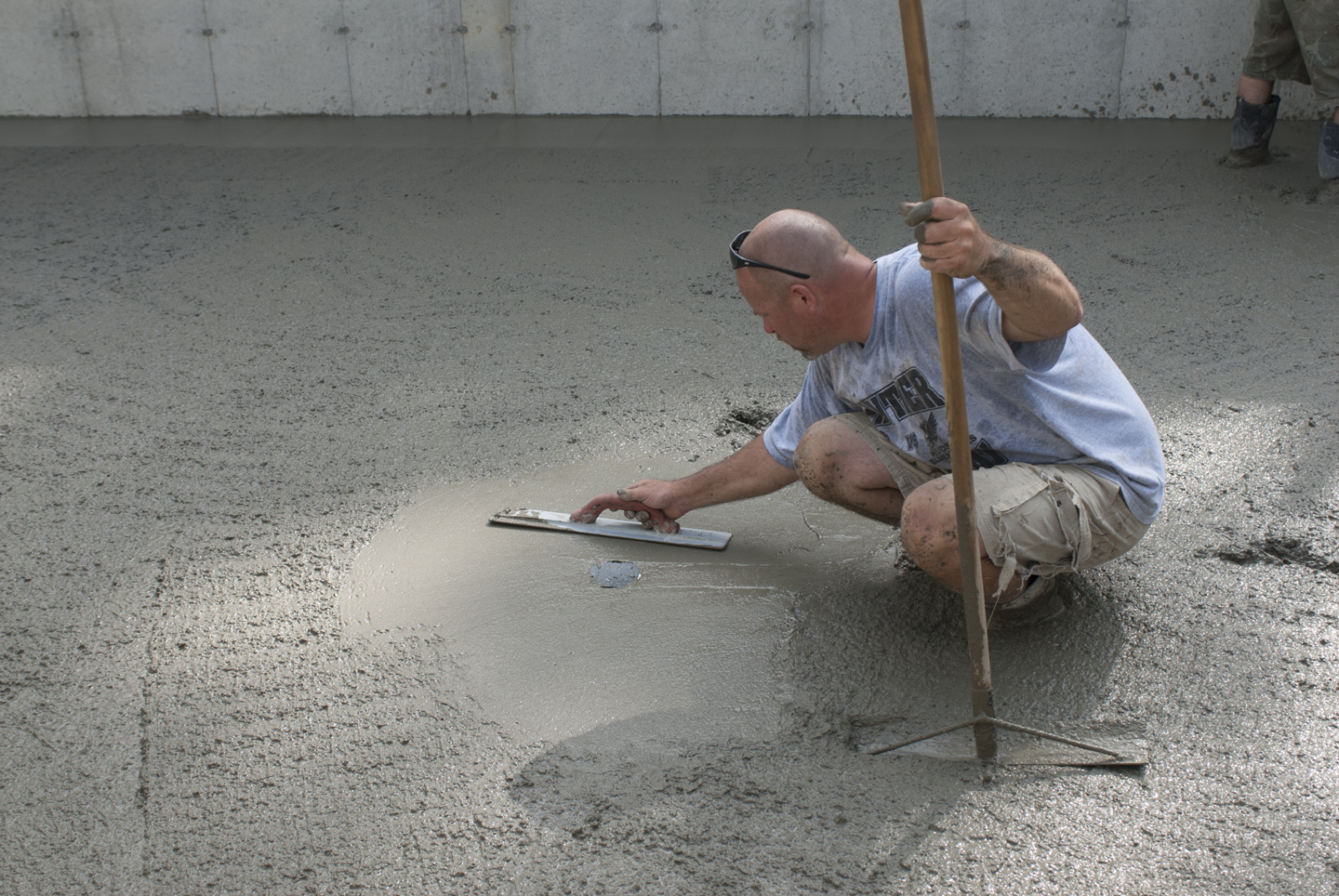 Clearing our in-floor electrical outlet.
Clearing our in-floor electrical outlet.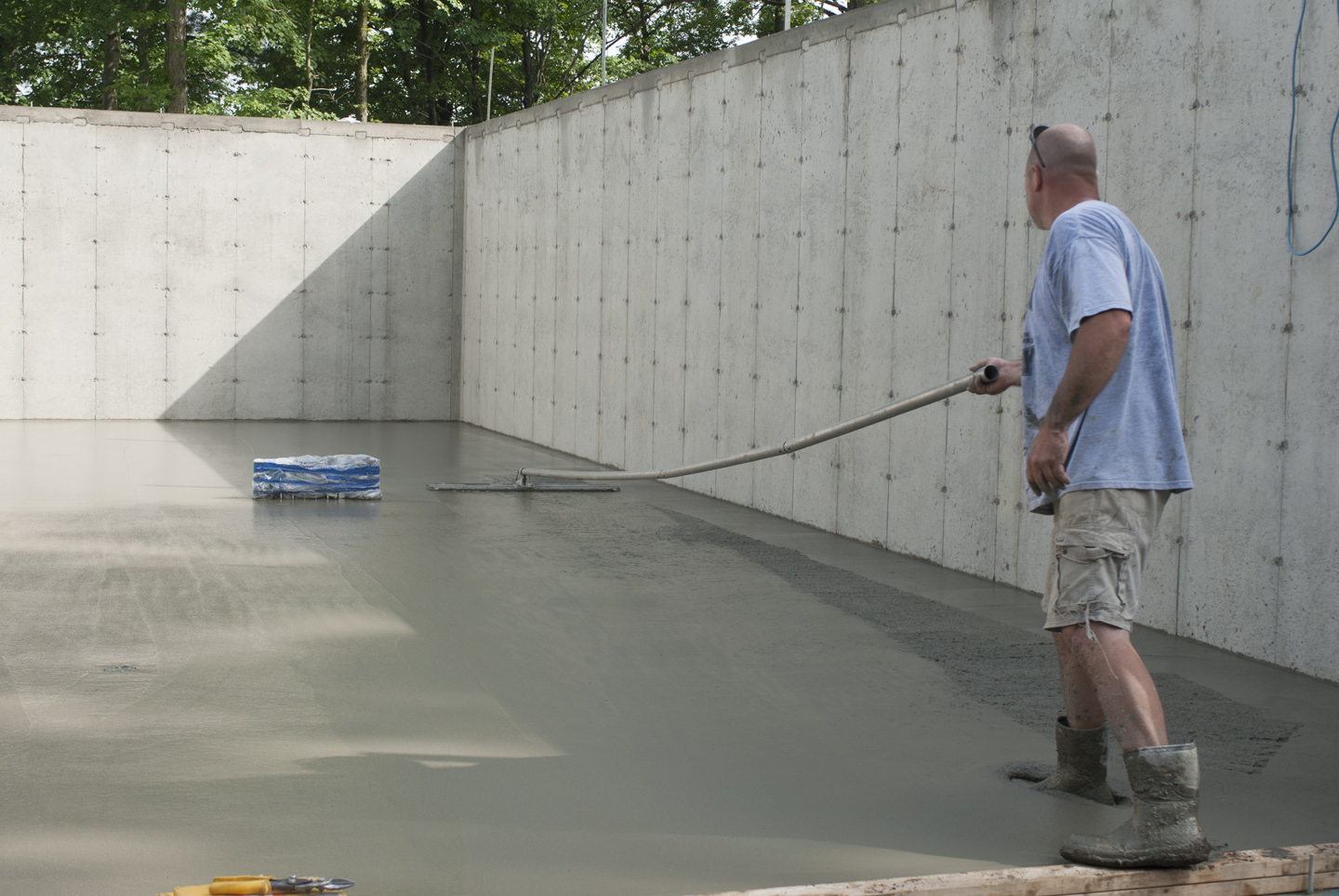 Slab finishing.
Slab finishing.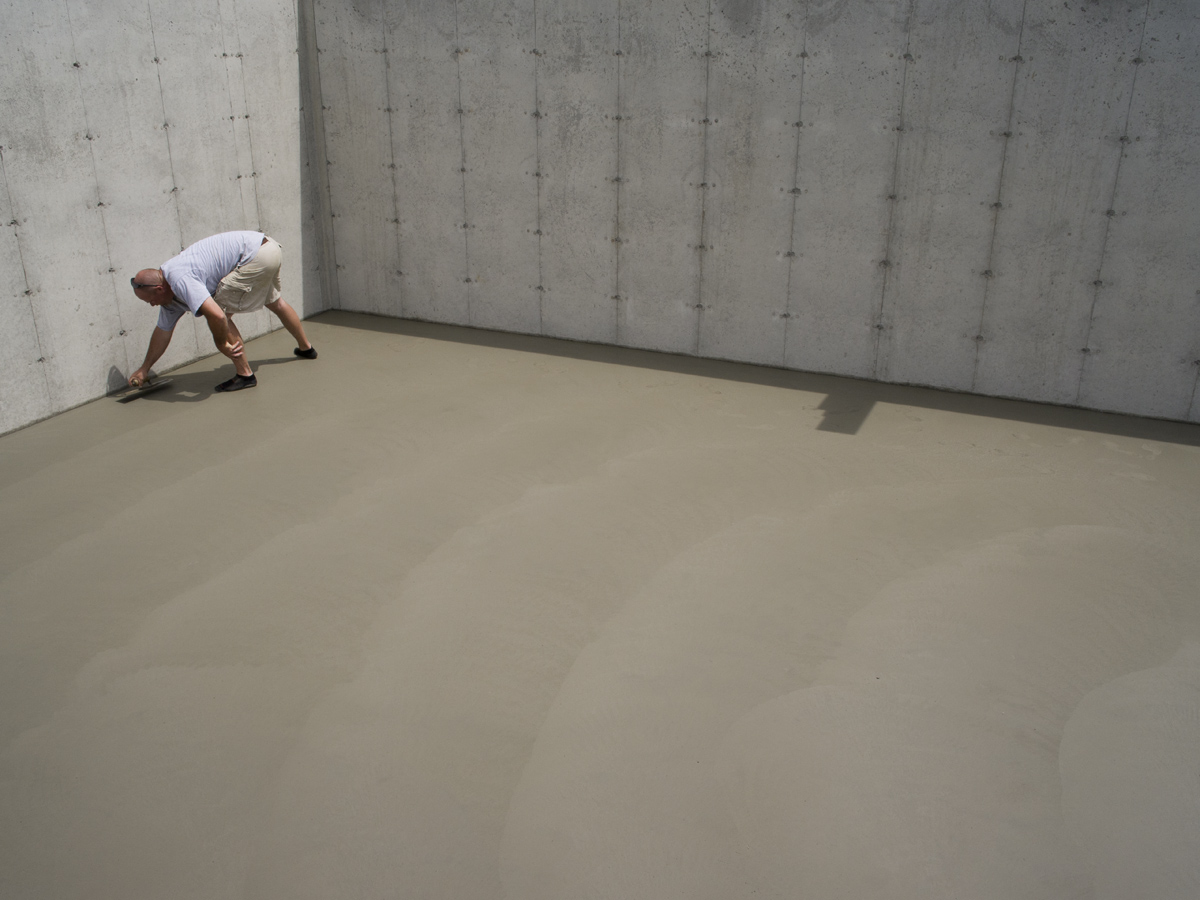 Edge polishing.
Edge polishing.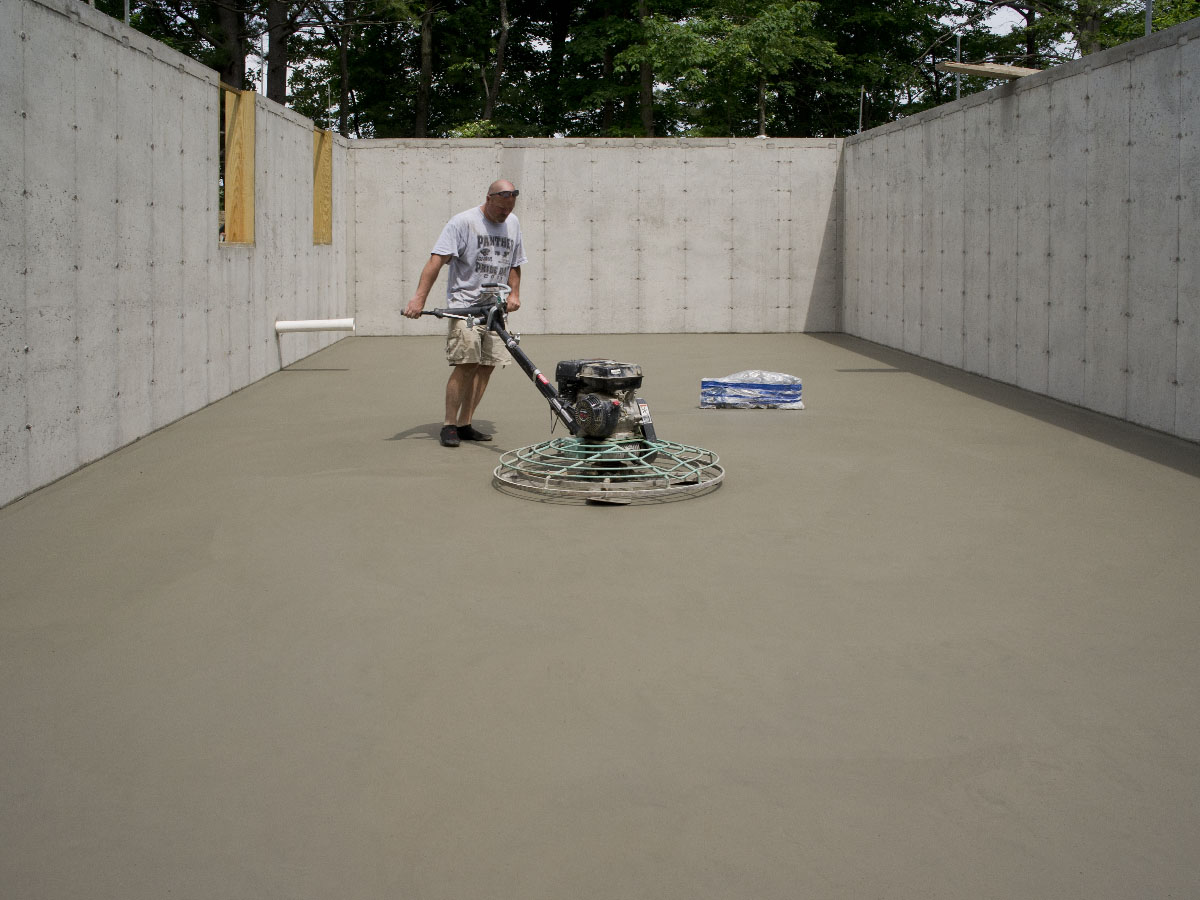 Dan Gregg spent the day polishing the floor.
Dan Gregg spent the day polishing the floor. 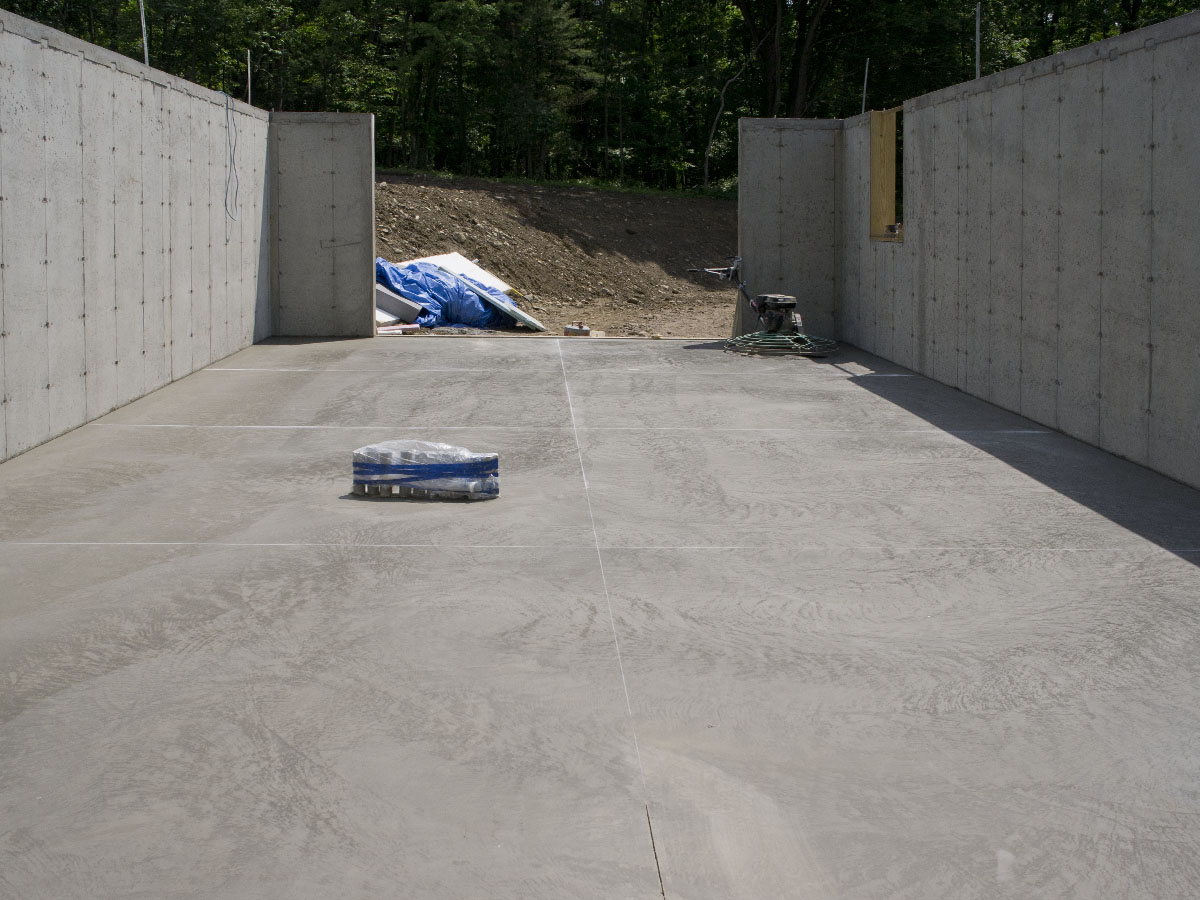 The finished slab with expansion joints cut in place.
The finished slab with expansion joints cut in place.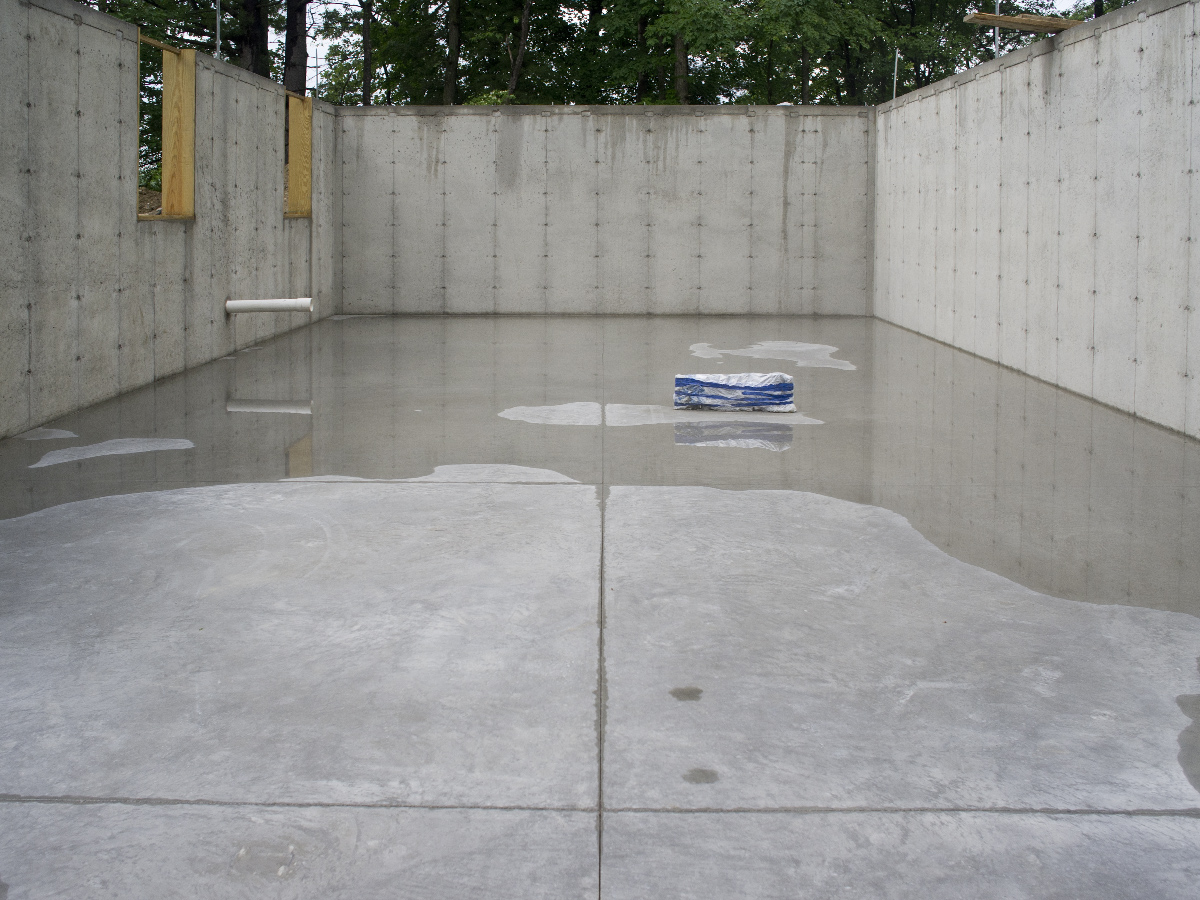 The rain returned at the end of the day.
The rain returned at the end of the day.
Striking water
 At 160 feet Tyler struck water.
At 160 feet Tyler struck water. Our estimated water flow is 15 gallons per minute.
Our estimated water flow is 15 gallons per minute.
Drilling for water in the rain
Septic tank with flout dosing system
 1,000 gallon septic tank (front) and 800-gallon flout dosing system (back)
1,000 gallon septic tank (front) and 800-gallon flout dosing system (back)
 As the water level rises, the flout device rises on a pivot and then flushes the tank into the septic field in a measured dose. The periodic dosing of the field helps the digestion process of the septic field.
As the water level rises, the flout device rises on a pivot and then flushes the tank into the septic field in a measured dose. The periodic dosing of the field helps the digestion process of the septic field.
Running the footing drain and radon vent to daylight
 Two pipes run from the foundation. The radon vent pipe is from the inside of the footing. The footing drain circles the outside of the footing.
Two pipes run from the foundation. The radon vent pipe is from the inside of the footing. The footing drain circles the outside of the footing.  Both pipes run down our excavated swale to daylight, draining to the hay field.
Both pipes run down our excavated swale to daylight, draining to the hay field. The plumbing is entirely bedded in a deep layer of drainage stone connected to the foundation drainage stone. This has created a wonderful continuous underground water channel carrying water away from the foundation.
The plumbing is entirely bedded in a deep layer of drainage stone connected to the foundation drainage stone. This has created a wonderful continuous underground water channel carrying water away from the foundation.

